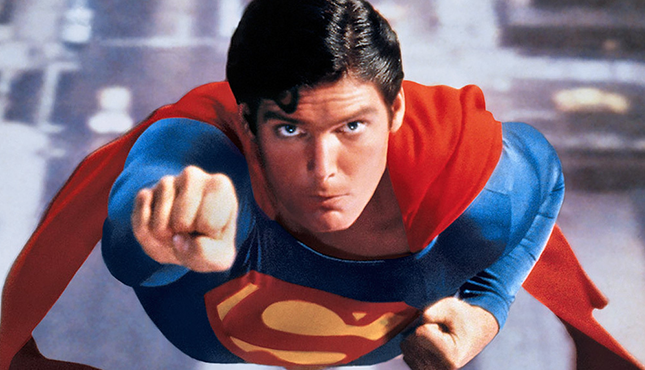Movies & TV / Columns
Looking At The Most Influential Superhero Movies Of All-Time

Last week Richard Donner, the Hollywood director and producer whose credits include some of the most iconic movies of the 1970s and ’80s including the Superman, The Goonies, and Lethal Weapon, died.
Donner’s 1978’s Superman, starring Christopher Reeve as the Man of Steel along with Margot Kidder, Marlon Brando, Gene Hackman and Ned Beatty was made for about $55 million and grossed more than $300 million at the global box office. It was the first movie tentpole based on a superhero comic character, it scored three Oscar nominations and won a special Academy Award for its visual effects. It also set in motion the superhero franchise space that is now dominated by the Marvel Cinematic Universe and the DC Universe of films.
Looking at what could be the most influential superhero movies, I want to point out that we’re talking positive impact so you won’t see Elektra, Howard the Duck, Catwoman, Batman Forever, or a number of other poorly done superhero movies being mentioned.
One thing I’d like to note is that the 1980s Flash Gordon gets a nod for having one of the catchiest theme songs ever.
For me, as far as most influential, it’a Donner’s Superman. Donner’s movie wasn’t the first superhero flick but it certainly evolved it to a point to be taken seriously by audiences. Donner’s Superman was respectful of the source material and Reeve is still the bar everyone attempts to rise to. Even with today’s special effects, Superman stands tall with some of the best flying sequences and the movie has true heart.
What I love best about it is that I can still watch it today and get the same feeling of excitement I did as a kid. That’s a special kind of movie. As far as its influence on superhero movies today, you don’t have to look hard to see its mark on the music, themes, and aspirations to be something bigger.
Look, when you see how far these movies have come, you can always throw a bunch of contenders out there. Take Superman’s opposite, Batman, who was no stranger to audiences, and 1989’s Batman got everyone’s attention and wiped away the campy reputation the Dark Knight had, thanks to the 1960’s TV show. Tim Burton’s vision opened the door for future superhero movies and Jack Nicholson’s portrayal of the Joker is still considered one of the best villains on the big screen.
Then we have the casting of Michael Keaton as Bruce Wayne/Batman. Thanks to social media, any casting is scrutinized within seconds of being announced but back then fans had…not a lot really. Phone calls and letters were about the extent of complaints but even the media had doubts on Keaton, who up to that point was known more for his comedic talents. His performance quickly put those hesitations to rest and stands as a prime example of not judging the cast before seeing the finished product on the big screen.
I’ll go ahead and throw out a few more options. Like 1998’s Blade. The movie was a darker look at comic book properties and became a commercial success by grossing $70 million at the U.S. box office, and $131.2 million worldwide and offered a glimpse of what was to come.
Unfortunately, superhero movies were still considered lightweight and it wasn’t until 2000’s X-Men that the potential they held was beginning to get noticed. With a large cast that included Anna Paquin, Ian McKellen, and Patrick Stewart, it launched a franchise that’s still kicking today. For better or for worse.
2002’s Spider-Man took advantage of the new light being shined and went on to become the first to ever cross the $100 million mark at the box office in a single weekend, setting a record at $114 million. A financial and critical success, it finished with $821.7 million worldwide, and was 2002’s third highest-grossing film and is the 56th-highest-grossing film of all time (seventh at the time of release). The film competed at the 75th Academy Awards ceremony for Best Visual Effects and Best Sound.
Christopher Nolan’s 2005 Batman Begins built on that and started one of the most hotly debated Batman trilogies. Nolan’s vision opened up the endless possibilities of where you could take superheroes and his trilogy set a highmark for future filmmakers.
Fast forward to 2008’s Iron Man and you have the seeds of the great Marvel powerhouse. It launched a carefully planned, perfectly executed shared universe that connected heroes and culminated into The Avengers which culminated into Endgame. While the movies from this point on may have their issues, what can’t be denied is they’ve locked into what audiences love, critics enjoy, and make money every time. We’ll be discussing these films decades from now. Seriously. 411mania 2050 will have me doing a column on “How Avengers Endgame Changed Cinema For the Worst”. Bookmark it.
Then we have movies like Deadpool, which flipped the superhero movie on its ear and showed you could make an R-rated entry into the field and still find success. Not only that, it broke the 4th wall and properly mixed humor and action on the screen. It opened the door to new ways to market comic flicks and it’s $783.1 milion box office shows that Deadpool may be onto something.
Before you go off in the comments about The Crow being rated R, I’m talking about true mainstream crossover.
Guardians of the Galaxy was another movie that balanced humor and action along with a cast of little known actors and actresses in the hands of a director that was just waiting to show the world his A game.
But when it comes down to it, Donner’s Superman is the one that stands above them all.







